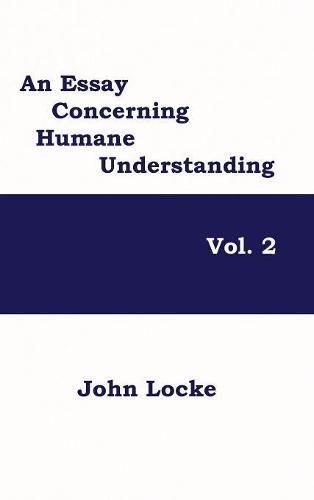Readings Newsletter
Become a Readings Member to make your shopping experience even easier.
Sign in or sign up for free!
You’re not far away from qualifying for FREE standard shipping within Australia
You’ve qualified for FREE standard shipping within Australia
The cart is loading…






This title is printed to order. This book may have been self-published. If so, we cannot guarantee the quality of the content. In the main most books will have gone through the editing process however some may not. We therefore suggest that you be aware of this before ordering this book. If in doubt check either the author or publisher’s details as we are unable to accept any returns unless they are faulty. Please contact us if you have any questions.
First appearing in 1689 (though dated 1690), An Essay Concerning Humane Understanding concerns the foundation of human knowledge and understanding, in which Locke describes the mind at birth as a blank slate filled later through experience. This essay was one of the principal sources of empiricism in modern philosophy, and has influenced many enlightenment philosophers, from David Hume to George Berkeley.
$9.00 standard shipping within Australia
FREE standard shipping within Australia for orders over $100.00
Express & International shipping calculated at checkout
This title is printed to order. This book may have been self-published. If so, we cannot guarantee the quality of the content. In the main most books will have gone through the editing process however some may not. We therefore suggest that you be aware of this before ordering this book. If in doubt check either the author or publisher’s details as we are unable to accept any returns unless they are faulty. Please contact us if you have any questions.
First appearing in 1689 (though dated 1690), An Essay Concerning Humane Understanding concerns the foundation of human knowledge and understanding, in which Locke describes the mind at birth as a blank slate filled later through experience. This essay was one of the principal sources of empiricism in modern philosophy, and has influenced many enlightenment philosophers, from David Hume to George Berkeley.